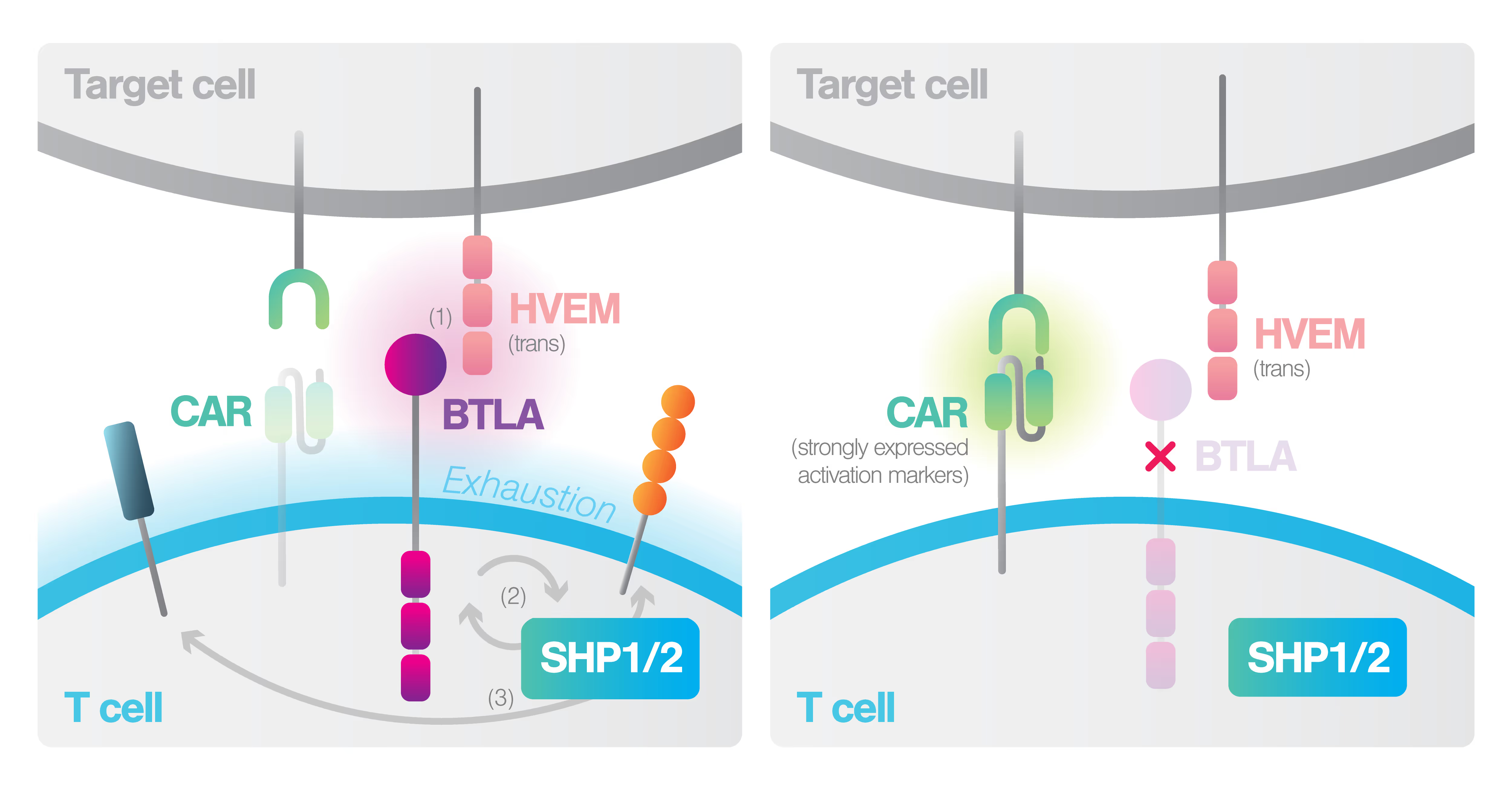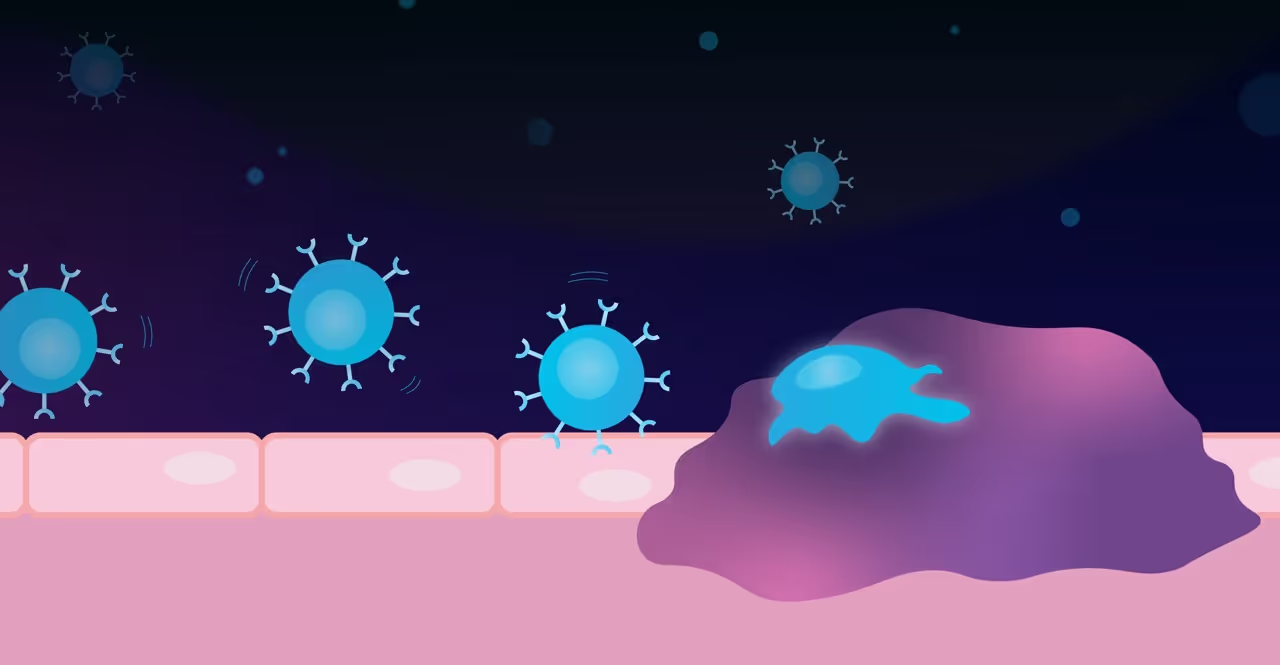Exploring the network of cellular interactions of Natural Killer cells in the tumor microenvironment with cell avidity
Abstract
NK cells serve as a potential immunotherapeutic tool due to their innate ability to kill cancer cells. They play a crucial role in cancer prevention by providing immune surveillance, making them attractive candidates for immunotherapeutic tool. However, quite often NK cell can fail to recognize and eradicate residual cancer cells, resulting in cancer relapse and lower chance of survival. In this webinar, Prof. Mark Lowdell, Chief Scientific Officer of INmune Bio, Inc. discussed how primed NK cells become effective against resistant tumor cells, and how cell avidity measurements were used to depict a stronger binding of primed NK cells, resulting in improved tumor cell killing.
What you'll learn
- How with Cell Avidity measurements, the team can rapidly distinguish NK sensitive- from NK-resistant tumor cells by quantifying amount of NK cells bound to cancer cells.
- How their research studies showed that the binding between resting NK cells and NK sensitive tumor cells depicted a higher Cell Avidity, indicating the formation of a stronger immune synapse.
- How Cell Avidity measurements were used to depict stronger binding of INKmune-primed NK cells that eradicate residual disease.
Get 5 of each and filter based on business unit client side.
This shows 5 of each card, and then filters them client side on BU.
Webinar, Scientific update, Whitepaper, Application note, Brochure.
We only show 4 cards in the end.
In design only 1 is shown, but the rest will be loaded when published.
Improving the anti-tumor efficacy of CAR-T through biomolecular condensation
Chimeric antigen receptor (CAR)-T cell therapies showed remarkable efficacies in treating otherwise intractable cancers. However, current clinically approved CAR-T therapies are limited by low antigen sensitivity, impeding their efficacy against cancers with low antigen expression. Here, to address this issue, we engineered CARs targeting CD19, CD22 and HER2 by including intrinsically disordered regions (IDRs) that promote signaling condensation. We discovered that the CAR fused with an IDR from FUS, EWS or TAF15 promoted the formation of CAR-T conjugation with cancer targets, the mechanical strength of CAR-T synapses and membrane-proximal signaling, which led to an increased release of cytotoxic factors and a higher killing activity toward low-antigen-expressing cancer cells in vitro. Moreover, the IDR CAR-T displayed improved antitumor effects in both blood cancer and solid tumor models. No elevated tonic signaling was observed. Together, our work demonstrates IDRs as a new toolset for improving CAR-T function through inducing biomolecular condensation.
This webinar is in Chinese. 此次线上研讨会为中文讲座
Cell Avidity Uncovers Novel KIR:HLA binding predicting patient survival post stem cell transplant
Despite significant progress in haploidentical hematopoietic cell transplantation (haploHCT) for leukemia, relapse-free survival remains a major challenge, even with the addition of immune effectors such as NK or T cells. Given the crucial role of NK cells and their killer immunoglobulin receptors (KIRs) in early anti-leukemic activity, this study sought to refine the understanding of KIR:HLA (human leukocyte antigen) interactions in order to better predict patient outcomes.Using a combination of in silico protein folding and interaction modeling with in vitro acoustic force microscopy to quantify immune synapse avidity, Peter's group identified and validated a novel functional interaction between full-length KIR2DS4 and HLA-B*35. This interaction was confirmed through cell avidity assays with monoallelic KIR and HLA cell lines. When applied to clinical data, patients who received haploHCT and NK cell addback from donors expressing only full-length KIR2DS4 showed significantly improved overall and relapse-free survival. These findings were independently validated in an adult cohort, revealing consistent survival advantages.This newly defined KIR2DS4:HLA-B*35 axis represents an immediately actionable marker for donor selection and offers a mechanistic insight into optimizing NK cell-mediated anti-leukemic responses.
Rational CAR design: Integrating affinity and tonic signaling
The success of chimeric antigen receptor (CAR) T cell therapy for hematological malignancies has not yet translated into long-term elimination of solid tumors, indicating the need for adequate tuning of CAR T cell functionality. The CAR binding moiety is the critical trigger for CAR T cell signaling. CAR binding affinity alone does not determine T cell effector functions. In a panel of anti-Her2 CARs covering a 4-log affinity range, we observed that rather high affinity and cell avidity above the minimum threshold, combined with elevated tonic signaling, produce adequate T cell capacity for expansion and tumor control. The same scFv mutations increased both antigen-specific affinity, cell avidity, and antigen-independent tonic signaling; above a minimum threshold, raise in affinity translated into cell avidity in a non-linear fashion. In this case, replacement by amino acids of higher hydrophobicity within the scFv coincidentally augmented affinity, non-specific binding, spontaneous CAR clustering, and tonic signaling, all together relating to T cell functionality in an integrated fashion. Data highlight the mechanistic complexity of CAR signaling and suggest inclusion of additional variables, for example, hydrophobic interactions, into the equation when determining the CAR’s antigen-specific and tonic signaling capacities.
Identification of potent biparatopic antibodies targeting FGF receptors in solid tumours
Translocations involving FGFR2 gene fusions are common in cholangiocarcinoma and gastric carcinoma and predict response to FGFR kinase inhibitors. However, response rates and durability are limited due to the emergence of resistance, typically involving FGFR2 kinase domain mutations, and to sub-optimal dosing, relating to adverse drug effects.
This webcast will present new work showing that the vast majority of such alterations retain the extracellular domain (ECD), potentially enabling highly selective targeting of the FGFR2 ECD using biotherapeutics.
To improve on the activity of traditional bivalent monotopic antibodies, the Sellers lab systematically generated biparatopic antibodies targeting distinct epitope pairs in FGFR2 ECD, and identified antibodies that effectively block signaling and malignant growth driven by FGFR2-fusions.
These antibodies robustly blocked proliferation and colony formation in FGFR2-fusion driven cholangiocarcinoma and demonstrated robust in vivo anti-tumour activity. In vivo activity was marked by significant antibody-mediated downregulation of FGFR2 and in turn this was associated with robust lysosomal internalization enacted by the two biparatopics. In vitro, the biparatopic antibodies demonstrated activity against FGFR inhibitor resistant alleles of FGFR2. The internalization properties of the antibodies also make them suitable for exploration as antibody-drug conjugates
Enhancing efficacy against clear cell renal cell carcinoma through format-tuning of bispecific T cell engagers
Cell Avidity uncovers critical binding mechanism impairing T-cell potency in the Tumor Microenvironment
Cell Avidity screening deployed by T cell pioneers to accelerate the identification of functional TCRs
Cell Avidity-tuning ensures safe CAR-T therapy for solid tumors
Cell Avidity: a key to accelerate IND filing in cell therapy drug development
Accelerate your cell engager discovery with high throughput measuremenets of Cell Avidity
Accelerate your cell engager discovery with high throughput measurements of Cell Avidity
T cells play a pivotal role in tumor immunosurveillance. Multispecific cell engagers (CEs) have been adopted in the field of immuno-oncology to redirect T cells toward cancer cells, thereby unleashing the anti-tumor potential of the patient’s immune system. CE-mediated cell binding induces T cell activation and the formation of an immunological synapse, which is a prerequisite for effective tumor cell lysis.
The strength of the initial binding events between a T cell and a tumor cell dictates the efficiency of the anti-tumor response. Assessing cell avidity, i.e. the total intercellular interaction strength between two cells, gives crucial insights into the efficacy of CEs as anti-tumor therapeutic agents.
Here, we deploy LUMICKS’ high throughput avidity measurement (HTAM) technology to measure CE-induced cell avidity in a high throughput manner. We demonstrate the assay performance characteristics, i.e. specificity, precision, and range, via CE titration experiments in the context of a Jurkat T cell model system. We find that the HTAM CA assay is suitable for candidate screening in high throughput, with high sensitivity and precision.
Identify functionally optimal TCR T cells through Cell Avidity measurements
T cell receptor (TCR) -based cancer immunotherapy has the potential to become a powerful approach to treat solid tumors, such as melanoma. However, conventional methods that validate the effectiveness of TCR transduced T cells are often inconsistent with functional assays or are tedious to perform. In this application note, we show how the z-Movi® Cell Avidity Analyzer reliably and quickly identifies functionally optimal TCR-engineered T cells targeting melanoma cell lines based on cell–cell interaction strength (cellular avidity).
Rapid assessment of CAR T cell strategies for multiple myeloma with the z-Movi Cell Avidity Analyzer
Identifying effective immunotherapeutic treatment strategies for multiple myeloma that also mitigate relapse often requires tedious and time-consuming validations, such as cell-killing assays and in vivo engraftments. We show that intercellular binding strength (cell avidity), measured by the z-Movi® Cell Avidity Analyzer, quickly predicts CAR T-cell efficacies that correlate with treatment outcomes in vivo.



















